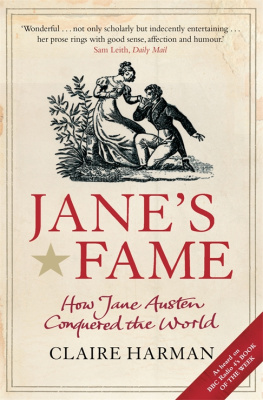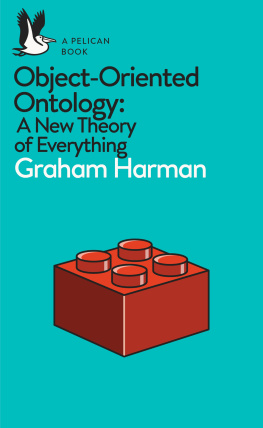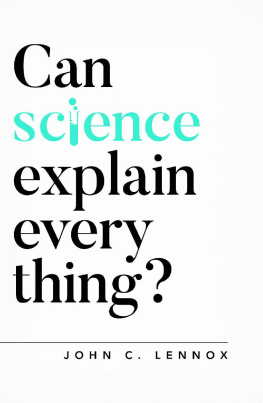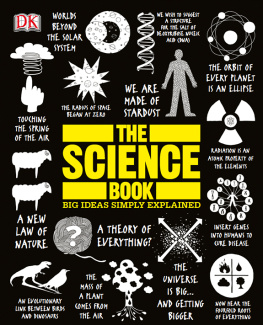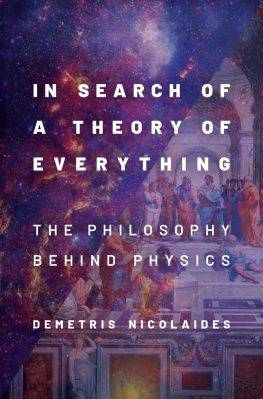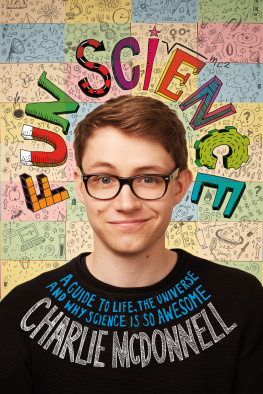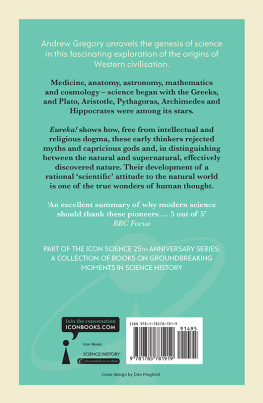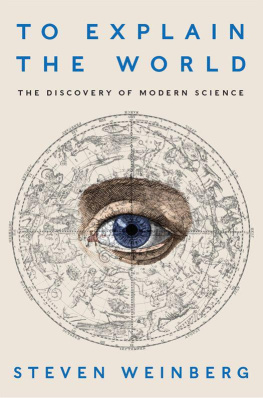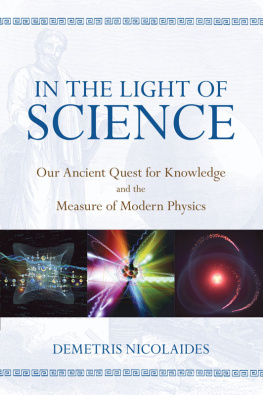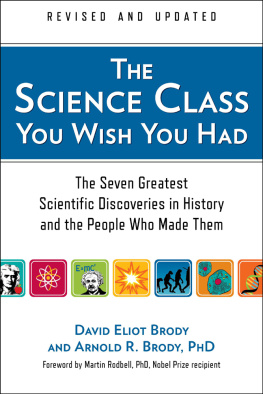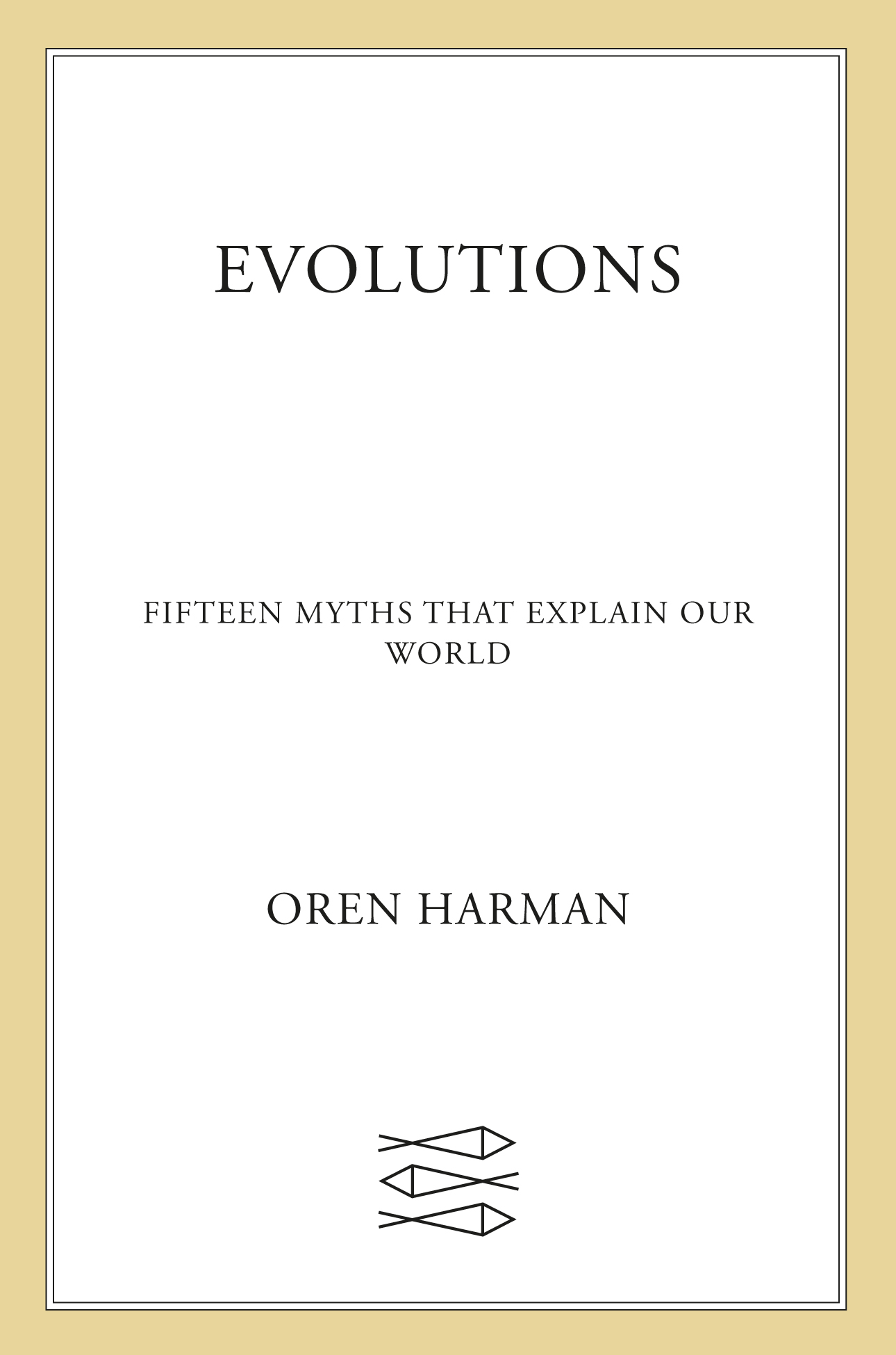Contents
Guide
Pagebreaks of the print version

The author and publisher have provided this e-book to you for your personal use only. You may not make this e-book publicly available in any way. Copyright infringement is against the law. If you believe the copy of this e-book you are reading infringes on the authors copyright, please notify the publisher at: us.macmillanusa.com/piracy.
These stories are dedicated to my children,
Shaizee and Abie,
and to my love, Yaeli
The great creator Viracocha rose from Lake Titicaca during the time of darkness to bring forth light. First he made the Sun, the Moon, and the stars. Then, breathing into the stones, he made the humans. But the humans were brainless giants, and soon they displeased him. So he ruined the world he had created with a flood, and made the humans once more from smaller stones. Eventually, walking on the waters, he disappeared across the Pacific Ocean and never returned again. But the Inca believed that he sometimes walked the Earth disguised as a beggar, teaching the people the secrets of civilization and weeping over the plight of mankind.
What does this mean? It depends who you ask. In the eyes of the philosopher, myths are allegories for philosophical truths; in the eyes of the historian, they are perversions of historical truths. To the psychologist myths reflect our deepest fears; to the moralist they provide a compass, and to the poet, inspiration. Myths are stories about a distant past or an imagined future, shadowing our existence like intimate, mysterious companions. They orient us in the universe and provide a kind of comfort. But myths also summon truths beyond our jurisdiction: about the nature of matter, and time, and the forces. About how we came to be, and why we can or cannot hope, and where we might be headed. However much we try to capture their meanings, we can only grasp at them fleetingly, like children lunging after butterflies.
Perhaps the literary critic Northrop Frye came closest to capturing their essence when he said that myths describe not what happened but what happens. Frye probably cribbed this from the pagan thinker Sallustius, the author of On the Gods and the Cosmos , who wrote of myths: These things were never, and are always. And Sallustius himself would have read Platos Phaedrus , where the Greek philosopher calls myths plain tall tales while confessing that unique fictions may express general truths. Whether myths are conveyed esoterically or symbolically, some believe that they begin with a kernel of fact about the cosmos and the relations within it. But do facts ever really exist outside of how we make them? Is there such a thing as reality, unambiguously presented to human consciousness and then described by language directly? Perhaps our concepts organize our world, before we perceive its so-called certainties. And perhaps these concepts are intimately tied to who we are.
And so, whether you are a philosopher, a moralist, a historian, a psychologist, or a poet, or just someone who loves to read myths, here is a useful way to think of things: myths are expressions of existential conundrums, creatures of our lonely, searching minds. And since our minds have always both imagined infinity and lived, uneasily, with the surety and sadness of death, throughout the ages the themes of myth have remained strikingly unchanging. Myths are humankinds stories about what we all feel in our guts is fundamental to our humanity but know with our brains can never truly be plumbed. Motherhood, Freedom, Death and Immortality; Memory and Jealousy and Solitude and Sacrifice; Birth and Rebirth, Truth, Love, Hubris, Fatethese are the realms of our indispensable mythologies.
Mythological themes may be universal, but they did not always mean the same thing to different peoples. To the ancient Egyptians, and later to the Christians, resurrection meant redemption, originally related perhaps to fertility rites of the yearly cycle of vegetation. But to modern minds who devised villains from Dracula to Batmans Joker, those who return often seek revenge and destruction. Despite the changing mores, the unannounced feeling that the themes of myths can never truly be penetrated is common to the ancient Greek, the medieval Mogul, the Bushman, the Algonquian, the Laplander, and you and me: Why are we here? How did we get here? What is the meaning of the hidden forces shaping our certain deaths and unpredictable lives?
As far as we know, rocks and trees and toads do not ponder such questions, and so, whatever our beliefs, we take myths as signs of our human distinctiveness. Certainly, they go back to our beginnings: most probably myths were not foreign to the hands that drew haunting images of animals in mountain caverns, such as the Chauvet Cave in southern France, tens of thousands of years ago. However we construe them, myths are not lies, nor are they pure inventions. Instead they are an odyssey, powerfully grounded in our collective human experience. Like life, which they set out to illuminate, they are both tangible and abstract, actual and imagined. But in the final reckoning, they do not provide definitive answers because the questions they raise have no definitive answers. Digging deeper than any other form of thought, myths represent humankinds gloriously futile quest for existential understanding.
The matter of myth is therefore more profound than the material of morality, which in comparison seems parochial, a child and perfect captive of its age. Myth is more defining than the functional fabric of religion, which comes from the Latin ligare , meaning to bind. As for the objective kingdom of fact, it has been well said that mythology is the penultimate truthpenultimate because the ultimate cannot be put into words. It seems Plutarch got it right, then, when he wrote that truth and myth have the same relationship as the sun to the rainbow, which dissipates light into iridescent variety. Myths have been spoken in different tongues throughout the ages, but their root and concerns remain universal.
As all peoples do and always have done, the ancient Greeks fashioned their myths in the idiom at their disposal. Even their greatest rebels could speak only in the tongue of their time. Take, for example, Empedocles.
Born in Acragas, Sicily, Empedocles lived sometime between 493 and 423 B.C. , and was a magician, a minstrel, a politician, a doctor, a philosopher, a tragedian, a charlatan, a prophet, or perhaps all of the above. He was teacher to Gorgias, pupil of Parmenides, contemporary of Zeno, follower of Xenophanes, and, like Plato, a student of Pythagoras accused of logoklopia , or the stealing of ideas. Empedocles, it is said, allayed a young mans murderous rage with a soothing melody on the lyre; wrote forty-three tragedies; checked a disease-carrying wind; and saved the women of the town from barrenness by blocking a cleft in the mountains. As if this were not enough, he also stopped a storm cloud from overwhelming the people of Acragas; revived a woman who had been for thirty days without sign of breathing or pulse; and cleared the acropolis of a plague caused by an evil stench from the river by digging channels from two neighboring rivers at his own expense. So wonderfully mystifying was this ancient sage of the Greek world that no one could agree on how it was he died: Demetrius of Troezen claimed he hanged himself. Favorinus wrote of a fall from a carriage and a broken thigh that never healed. Telauges had it that as an old man Empedocles had lost his balance on board ship and drowned. Heraclides Ponticus, and after him Horace and Ovid and Lucian, all great poets of the ancient world, provided the most dramatic death of all: Empedocles, according to them, dove headfirst into the gushing mouth of Mount Etna in order to confirm the report that he had become a god.


